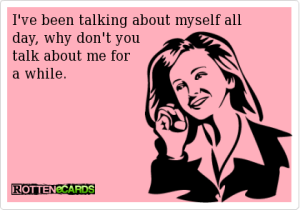 Well, my goal of updating my blog once a week is off track, I could talk about reasons-work, vacation, blah, blah, blah. But the best way to get back is just to do it! I could also talk about something I’ve been up to creatively, my latest thoughts on writing, publishing, etc. But one of the things I really like about living in this area of Vermont is that there’s such a strong writing community here. And several members of that community have had some neat news recently, so I’d rather talk about that!
Well, my goal of updating my blog once a week is off track, I could talk about reasons-work, vacation, blah, blah, blah. But the best way to get back is just to do it! I could also talk about something I’ve been up to creatively, my latest thoughts on writing, publishing, etc. But one of the things I really like about living in this area of Vermont is that there’s such a strong writing community here. And several members of that community have had some neat news recently, so I’d rather talk about that!
Andrew Liptak is the dynamo behind Geek Mountain State, a promoter of creative geekery in Vermont in all its forms, and the weekend editor at io9. He recently shared on his blog about how he is leaving his day job to focus more on his various pursuits, and maybe start a new thing or two. I’m always excited when any of us can pull this trick off, doubly so since he’s a friend , and makes such wonderful things in the world. Well done Andrew!
Angela Palm is one of the first writer-folk I met when I moved here, courtesy of her own dynamo-like involvement with multiple local presses and writing organizations. Her memoir Riverine is coming out early next year from Graywolf Press as a result of her winning their nonfiction prize. And she recently had an excellent essay published at Parent.co about the challenges of balancing work, kids, and marriage with really launching her writing career. I appreciate how she’s unblinking and honest about the impossibility of doing it all, and the cost of making decisions about the trade-offs involved. It’s sobering, and yet at the same time really inspiring. If you’re struggling with any of these issues yourself, you might want to check her essay out!
Michelle Watters is one the poetry editors I work with on Mud Season Review, and also a creator of some beautifully darkling poetry that I adore. I’ve been totally inspired by how much energy she’s poured into getting her poetry published over the last year, and the honesty with which she shares her ups and down around it. On her blog she recently talked about her bitter disappointment when she didn’t win a Poetry manuscript contest she had high hopes for. And then just a day or too later had some poems accepted for publication, and talked about how that turned her mood around. And also noticed that white butterflies seems to have something to do with literary acceptances…
The thing about being a writer is, it’s hard work. Not just the writing itself, and the emotions around that, but the constant ups and downs of the work it takes to put your stuff out there in the world. Hearing about successes (and struggles) from some of the others who are strapped in to the roller coaster of the creative life with me totally keeps me going. So thanks guys!